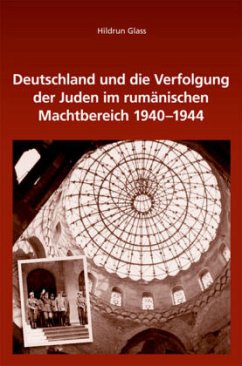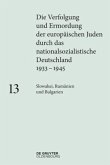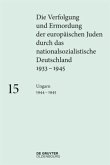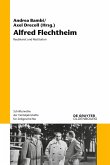The opening of the Romanian archives after 1989 has brought to light the extent of the Antonescu regime’s policy of persecution and extermination directed against the Jews living under Romanian rule. This new information compels a reassessment of the actions of National Socialist Germany. Hildrun Glas analyzes the interactions between Germany and Romania, filling a gap in the research on the regional dimensions of the Holocaust.
Seit Öffnung der Archive nach 1989 ist das ganze Ausmaß der Verfolgungs- und Vernichtungspolitik des Antonescu-Regimes gegenüber den im rumänischen Herrschaftsbereich lebenden Juden zutage getreten. Angesichts dessen ist auch die Rolle des nationalsozialistischen Deutschland neu zu bewerten. Hildrun Glass analysiert die Interaktion zwischen Deutschland und Rumänien von 1937 bis 1944 in diesem Politikfeld. Damit leistet sie einen Beitrag zur Analyse der Beziehungen des NS-Regimes mit seinen südosteuropäischen Verbündeten und schließt endlich eine Forschungslücke zu regionalen Dimensionen des Holocaust.
Seit Öffnung der Archive nach 1989 ist das ganze Ausmaß der Verfolgungs- und Vernichtungspolitik des Antonescu-Regimes gegenüber den im rumänischen Herrschaftsbereich lebenden Juden zutage getreten. Angesichts dessen ist auch die Rolle des nationalsozialistischen Deutschland neu zu bewerten. Hildrun Glass analysiert die Interaktion zwischen Deutschland und Rumänien von 1937 bis 1944 in diesem Politikfeld. Damit leistet sie einen Beitrag zur Analyse der Beziehungen des NS-Regimes mit seinen südosteuropäischen Verbündeten und schließt endlich eine Forschungslücke zu regionalen Dimensionen des Holocaust.








